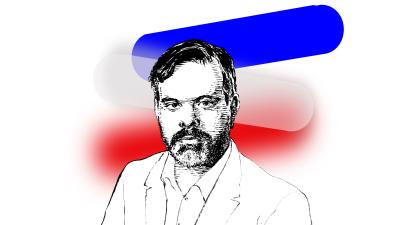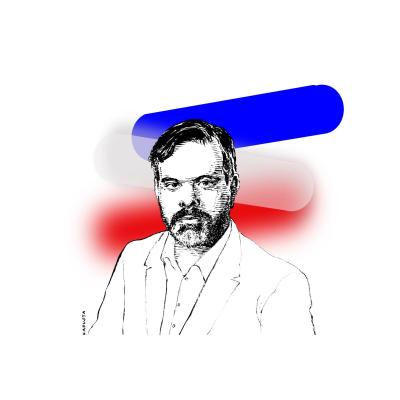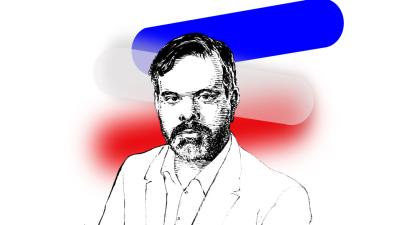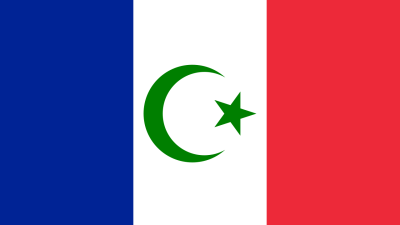The "Russian Party of France" is very versatile, which allows it to reach several categories of the population with different discourses. Members of this party include senior French officials, generals, former intelligence officers, diplomats, former ministers, party leaders. In my opinion, on the Right, both the RN and "Reconquest" base, as well as the politicians and main influencers who claim to be Gaullists (see my article: https://deliberatio.eu/en/essays/would-de-gaulle-be-pro-russian-today) are 80% pro-Russian or Putino-relativist. They relativise Putin's guilt and accuse the victim, Ukraine, and its Western defenders, of a thousand evils. They go so far as to use leftist rhetoric by presenting Putin as a victim of the Western colonialist system.
Thus, an overwhelming majority of non-progressive intellectuals, journalists and political opinion leaders on social networks have uncritically adopted the Russian narrative. While condemning Russian aggression in principle, they call for a halt to arms shipments to Ukraine so as "not to prolong the war". This would be understandable if, at the same time, they did not call for an end to the sanctions against Russia, which would have the immediate effect of a massive influx of fresh money for the Russian state and would therefore fuel its dirty war. They claim to be impartial, but all their proposals amount, in practice, to giving advantage to Russia - so there is no doubt that they are in fact pro-Russian. Let us enter that world, where mental confusion and denial of reality reign supreme.
The "Putin worshippers", national bolsheviks ready for action
First of all, there are the "Putin worshippers" who are in charge of spreading the Russian narrative and its almost daily updates. They bring together the opinion leaders of a plethora of very militant groupings of anti-colonial and anti-Zionist far left and heirs of the French anti-Semitic nationalist far right (who are today more anti-American than anti-Semitic). There is no formal alliance between them but they converge in struggles against the USA and/or Israel - which they consider as the same entity. This unnatural brotherhood of arms, which seemed completely unimaginable even twenty years ago, is the fruit of the assiduous work of a man fairly well known in Parisian intellectual and showbiz circles: Alain Soral. A friend of Aleksandr Dugin (the great Russian promoter of national bolshevism and the main ideologue providing an intellectual framework for Russian imperialism and military expansionism), Alain Soral has prefaced the French translations of Dugin’s works and describes himself as "very pro-Putin". It was Mr Dugin who, in 2014, said: "Annexing the European Union is a grand design worthy of Russia(.) Soft power will suffice: finding a 5th column, propelling to power the people we control, buying with Gazprom's money advertising specialists...". Appearances seem to prove him right. Alain Soral is close to Xavier Moreau who is the Kremlin's chief propagandist for France. A businessman living in Russia, he is said to be "close to the Russian power" and is the main source of information for the French Putin worshippers, despite the fact that he is constantly wrong (Putin will never attack Ukraine, Russia will take Kiev and Ukraine in a week, Ukrainians are waiting for the Russians to liberate them from the "ukronazis", Kherson will never fall, etc., etc.). Mr. Moreau is a friend and close associate of Pierre Gentillet; they are both "pillars" of the “Pushkin Circle”, which, according to a journalistic investigation, hosted meetings with these gentlemen, members of the anti-Semitic far right and the head of the GRU (Russian military intelligence) section in Paris. Pierre Gentillet is an opinion leader of the main non-progressive right wing media like CNEWS (French equivalent of Fox News). He is also very close to the RN MEP and the former transport minister of Nicolas Sarkozy: Thierry Mariani. The latter, along with the former centrist senator Yves Pozzo di Borgo, has just been targeted by an investigation for corruption in connection with Russia. Mr. Gentillet started in politics with a small group of friends: Jordan Bardella (current president of the second largest party in France: the Rassemblement National) and Sarah Knafo (campaign manager as well as official and public mistress of the conservative presidential candidate, writer and well-known polemicist: Eric Zemmour). It is interesting to note that Alain Soral also claims to have had a relationship with Sarah Knafo, and that one of his promoters, Alexander Orlov, the former Russian ambassador to France, was close enough to Eric Zemmour to be one of his two patrons for admission to the most exclusive club in Paris: the "Cercle de l'Union Interalliée". One of Sarah Knafo's close friends is Erik Tegnér, founder of “Livre Noir”, an iconic media in the non-progressive right-wing milieu. In a financial difficulty, according to “Lettre A”, he borrowed several thousand euros from Charles d'Anjou. Mr d'Anjou is based in Moscow and is an advisor to a private Russian security group headed by a former FSB (Federal Security Service of the Russian Federation) colonel. It was Xavier Moreau who helped Charles d'Anjou in his early days. Charles d'Anjou, while not a member of the mainstream media, became - with disconcerting ease, despite his pedigree - a fixer for the main French TV channel: TF1 in the Ukrainian region of Donbass. He finances, in an unknown way, the launch of a new medium in France, with 20 employees and a headliner: Regis Le Sommier (former deputy director of Paris Match).
The galaxy of national-revolutionaries, left-wing nationalists, right-wing nationalists, national socialists, national-socialists and national-bolsheviks, which is often not very well behaved, has almost no electoral weight, but is very influential ideologically among the militants and leaders of the right and the left. The two most publicly known leaders, who are also the least radical ones, are Mr Asselineau and Mr Phillippot. They carry no electoral weight, but are very noisy in the media because of their very active followers on social networks and in demonstrations. The Russian media use them when they want to make people believe that the population of France supports Russia. The convergence of struggles of this group is based on the identification of a common enemy, for various reasons: the USA. And on the same cause that is close to their hearts, and to which all their ideas lead: reopening of the Russian gas and oil taps. When you listen to them, you get the impression that Russian gas is the alpha and omega for the French to live happily. It is worth recalling Alexander Dugin's assertion: "Soft power will suffice: find a fifth column, propel the people we control into power, buy advertising specialists with Gazprom's money".
Putinophile opinion leaders are people violent in their words (and sometimes in their actions) who know fully well that they have no chance of gaining power through the ballot box. So they take Lenin as their model for ascension and hope to come to power based on amorality, determination and violence, through revolution or misunderstanding. The bedside book of the leaders of this movement is Lenin's "What is to be done?" and his recommendation "to use all manifestations of discontent and to work out the smallest elements of a protest, however embryonic".
Russia Today, the channel that converted non-progressive France to the Russian narrative.
This has been the consistent editorial line of "Russia Today" (RT) in France, which has covered the Gilets Jaunes protests with great brilliance and has won the sympathy of the Gilets Jaunes through a much more honest coverage than the mainstream media. Indeed, the (mainly Parisian) editorialists of the mass media who were 90% pro-Macron showed a particularly humiliating class contempt for the Gilets Jaunes. The "entre-soi" within the mainstream media is moreover one of the reasons for the success of "Russia Today". All journalists, intellectuals or editorialists refusing to promote the progressive credo on immigration, gender theory or identity have been gradually excluded from the mass media. "Russia Today" was thus able to recuperate the non-progressive Parisians who did not have much choice if they wanted to live off the fruits of their thoughts. Let's be honest: Under Emmanuel Macron's first term in office, the mainstream media were frighteningly unanimous, and this channel was the only one to broadcast a certain plurality of opinions, whether we liked them or not. It is the basis of our democracies to be able to have real contradictory debates. In doing so, "Russia Today" has emerged as a dissident medium, exposing all issues that the mainstream refused to broadcast otherwise than from a progressive ideological perspective, for example the effects of mass immigration on the daily life of the French. Many French people are caricatured, sometimes even insulted, by the mass media (in France, 90% are progressive) - because they vote RN, because they are practising Catholics, because they complain about the growing insecurity linked to mass immigration, because they are worried about the institutionalisation of gender theory. These French people have found a channel that listens to them: RT.
Moreover, as I have seen on many occasions in connection with Poland, the mainstream media decontextualise and sometimes even invent information to make their articles fit their ideology. Hence, out of intellectual laziness, many French people now think that when a mainstream medium says white, it must be black. More and more people judge the good faith of a news source by its ability to produce a narrative contrary to that of the mainstream media. Add to this the fact that we all tend to seek out information that supports our worldview, and it's easy to see why alternative media and non-progressive influencers, corrupt or not, in order to gain an audience, have to produce content opposed to that of the mainstream media. Also, when the latter are pro-Ukrainian, the former must be pro-Russian in order not to lose the majority of their clientele. The worst thing for them is that they are now trapped, because at the beginning of the war they aligned themselves with the main opinion leaders "made in” “Russia Today". They have been disseminating a lot of false information, each piece more delirious than the previous one, blatant photomontages looking ridiculous to all who know Ukraine, and doctored videos that make you sleep. So, from now on, in order not to make fools of themselves, they are obliged to continue their headlong rush. It is also worth noting that the few conservative influencers on social networks who are pro-Ukrainian prefer never to talk about this topic so as not to lose their followers.
Thus, RT has not only succeeded in making Putin's regime look like a defender of pluralism in France, but also and above all in imposing the Russian national-Bolshevik narrative as a dogma within non-progressive circles. Moreover, it has propelled and swarmed several opinion leaders who, in between subjects touching the daily life of the French (which the mass media refused to deal with), instil Moscow's propaganda. According to my sources, the main opinion leaders at RT earned up to 8000 euros/month. After RT was banned from broadcasting in the EU, the best-known influencers who worked in the main mass media, even if they had stopped working for RT, continued to receive their cheques. According to the same sources, the best-known journalists could also receive 50,000 euros and more for a foreword to a Russian book translated into French and promoting Putin or Russia.
Even though RT has ceased all activity in France since January due to the closure of their bank account, still they have had time to identify all the opinion leaders, their relatives, their quirks, their hidden vices. In short, to map the whole of Paris. RT contributors will say that this is conspiracy. But how can anyone believe for a second that Vladimir Putin, a former agent of KGB - a service known and recognized for its systematic filing, manipulation and blackmail operations – has created RT to promote press freedom in France? The most naive will say that this is just the usual influence that every country seeks. Of course, all states have tools of influence and intelligence services at their disposal, but the difference is that in Russia it is the intelligence service that has a state at its disposal. And "Russia Today" is one of its tools.
French VIPs and their support for Putin's Russia
The journey into the French Russophile networks is, alas, not over, and we come to the their most obscure part, the most subject to speculation - that of the VIPs. In France, French politicians of all stripes, the intelligence services, the overwhelming majority of our diplomats and great experts saw nothing coming and were totally convinced that the Russians would never attack. Worse, they still do not understand what happened. For the intelligence services, there are three possible explanations for this blindness. First, there may simply be a problem of intellectual level. All the senior officials and military intelligence officers I had to listen to were far from smart... and were all full of prejudices and stereotypes. It is possible that they had been 'intoxicated' voluntarily by the Russians - and involuntarily by the Germans. For it would seem that the French intelligence services, as far as the countries of Eastern Europe are concerned, rely, in particular, on the analyses of their colleagues in the German intelligence services. According to the former British Prime Minister, Boris Johnson, just before Russia invaded Ukraine "Paris was telling everyone that Putin would never attack, and Berlin that if he did, it would be better if everything ended quickly and Ukraine collapsed.” In this context, it is not impossible that the German services only provided the French services with appeasing analyses.
Secondly, a number of pro-Russian think tanks, whose sources of funding are obscure, have flourished in France in recent years. They have hired generals and intelligence directors. Given their weak intellectual background and the thirst for recognition that often goes with their occupation, it has surely been easy to get them to print the Russian narrative - a narrative that they now spread in the mainstream media and social networks.
Take the example of the "Centre Français de Recherche sur le Renseignement" (CF2R) headed by Éric Denécé, the former intelligence officer in the French Navy and then in the General Secretariat for Defence and National Security. Despite a speech so pro-Russian that it would make Putin himself blush, he has been the guest of all the media. The latter presented him as an expert, whereas he first accused the Americans (before the Russian invasion) of "staging a Russian threat and aggression that does not exist". Then, at the end of March 2022, he called on Volodymyr Zelensky to "apologise for having instigated the conflict in Ukraine and contributing to the extermination of its population". Within the CF2R, you will find a number of "experts" who are regular guests on TV and radio channels or social networks. For example, Colonel Jacques Baud (Switzerland), a former member of the Strategic Intelligence Service, who will say on all the platforms: "there were never any Russian troops in Donbass before 23-24 February 2022, and Moscow did not arm the separatists" - though Mr Baud's own sources say the exact opposite, though Putin himself says the opposite, though many of the founding leaders of the separatist republics in 2014 were not even born in Donbass. They are Russians such as the famous hero of the Russian wars Igor Gurkin "Strelkov". Born in Moscow, he never lived in the Donbass before 2014. In 2014, he was the commander of the GRU, the General Intelligence Directorate in Ukraine, organised the armed rebellion of the separatist republics and even became the first Defence Minister of Donetsk. The same profile, origin and itinerary holds true for Mr Chetsov, the Minister of Security. Or for Mr Boradai, the Prime Minister of the Donetsk Republic...
Then you have Alain Juillet, former Director of Intelligence at the General Directorate of External Security and former employee of Russia Today, who unashamedly pours out the Kremlin's narrative on social networks. Christophe Gomart, former Director of Military Intelligence, who has recently left the CF2R, which did not prevent him from doing a show on YouTube with Alain Juillet where the most "low-end" fake news of the Russian propaganda was put forward. We also have Pierre Lellouche (minister under Nicolas Sarkozy) who is currently (and opportunely for Russia) doing the rounds of the TV sets and editorial offices to warn that the massive military aid given to Kiev may not allow the conflict to be resolved, but rather aggravate it. As if peace depended on us.
Here are a few more names, but I can't mention them all: Alain Chouet, former Head of the Security Intelligence Service (SRS) of the General Directorate for External Security (DGSE); Air Force Brigadier General Pascal Legai, former Commander of the Interarmed Imagery Training and Interpretation Centre (CF3I) of the DRM (2004-2006), former Director of the European Union Satellite Centre and "Senior Advisor" to the Director of the European Space Agency; or Colonel Igor Nicolaevich Prelin (Russia), a veteran of Soviet intelligence who served his entire career (1962-1991) in the KGB, where he successively held positions in the Counter-Intelligence Service, the Intelligence Service (Guinea, Senegal, Angola), the Intelligence School - where he was, among others, Vladimir Putin's instructor - and as the press officer of the last president of the KGB, General Krioutchkov.
As for our diplomats and experts, they may have been fooled by the Russian elites (who can be particularly charming, cajoling, affable and kind). At the same time, all they had to do was go to a Russian bookshop or watch TV to realise that the regime was rehabilitating Stalin, preparing the Russians for war and making Russian people believe that the West wanted to destroy them. How could they not see that the gang of KGBists in power in Russia were in fact old Cold War soldiers who were only waiting for one thing: the opportunity to take their revenge? The same is true today: how can they not understand that peace would mean the end for Putin's regime and that it is therefore unthinkable for him? That the only thing we can offer Putin that would please him is to die with honours for the Russian empire against overpowered and outnumbered forces, followed by a first-class burial and the assurance that our embalmed bodies will be displayed alongside Lenin?
There are also impressive complicities within the media: how else to explain the incredible story of Adrien Bocquet? A storekeeper in the French army (for less than 2 years), with no particular charisma or network, he managed to make the rounds of French TV and radio stations by posing as a French army commando who witnessed war crimes committed by Ukrainian forces in Boutcha, even though he had never been there. He is now in Russia, is presented by the Russian press as either a military expert or a journalist - and has just applied for political asylum and Russian citizenship.
France is a nest of Russian agents capable of changing the situation in the medium to long term
The widespread and diverse network set up by the Russians in France is formidable. By its diversity, it is capable of addressing a communist boomer as well as a Zemmourian tiktoker. Above all, it completely embraces the non-progressive elected representatives of active activists who get their information mainly from social networks flooded day and night by the Russian narrative and their journalists, opinion leaders, experts, diplomats and military officers turned inside out. Don't think that the progressive elites are spared: they also frequent all this small world, so they must influence each other. Where do you think language like "giving security guarantees to the Russians" comes from? Shouldn't it be Moscow that gives us these guarantees? It is the power that has the most nuclear warheads in the world, puts into service a whole bunch of unstoppable "Wunderwaffen" ("miracle weapons"), capable of destroying half of France in two minutes or triggering huge radioactive tsunamis, and has just invaded a country!
Everything I have just summarised here is public, so imagine everything that is not. Especially when you know the methods of corruption, threats, manipulation and blackmail of Putin's regime. But is this a danger? At the moment, 70% of French people are in favour of supporting Ukraine, and so are the mainstream media. On the other hand, since the “Yellow Vests”, all sociologists, political scientists and other climatologists of the French society are unanimous in saying that it is particularly divided and inflammable. At the same time, the French have just re-elected Emmanuel Macron by a large majority and while they had a wide choice, whether on the left or the right. True, the abstention rate was higher than usual, but the abstainers knew very well that their refusal to vote would bring Mr Macron to power. Moreover, unemployment is low, no one is starving, football, TV, social networks, Netflix, Amazon and Disney distract the population quite well. Through the combined action of France (as a "good cop") and Poland (as a "bad cop"), Germany has been forced to give heavy tanks to Ukraine, which removes for a year or two the spectre of a reversal of German policy in favour of Russia. In the long run, however, a German reversal would divide the French progressive elites, who might switch to neutrality, especially if they were confronted at the same time with major social movements that the Putinophiles would hasten to try to frame...
Read also
France: Are the scandals of the "Progressive Circus" premeditated?
In my editorial of 11 June (LINK), I began telling you about the 'Progressive Circus' to explain the passivity of the French people in the face of the incredible hypocrisy of their ruling elites.
Patrick Edery
Is France Islamophobic?
This may seem a surprising question, given that France welcomes tens of thousands of Muslims from Africa and the Middle East every year, despite the considerable costs involved.










Comments (0)